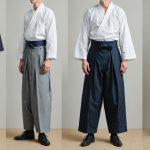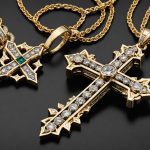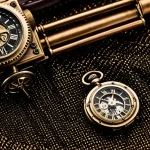Typical Formal Attire for UK Women
When attending formal events in the UK, UK women’s formal wear typically includes evening gowns and cocktail dresses. These styles remain the cornerstone of any formal UK dress code, cherished for their elegance and suitability. Evening gowns are preferred for black-tie occasions or gala events, often crafted from luxurious fabrics like silk, satin, or chiffon that lend a sophisticated shine and softness. Cocktail dresses, meanwhile, offer versatile options for semi-formal gatherings, providing a chic yet polished appearance.
Dress length is a key consideration. Evening gowns usually fall to the floor or just above, aligning with the more traditional UK dress codes. Cocktail dresses are generally knee-length or slightly shorter, offering a modern flair while maintaining formality. Fit is just as vital; tailored, flattering silhouettes are favored to complement the wearer’s shape without being revealing, adhering to the balance of modesty and style typical of UK women’s formal wear.
Also to read : Unlocking the chic edge: a comprehensive guide to women’s british rocker style
Fabric choices reflect the season and formality. For winter, heavier materials with subtle embellishments are common, while summer events might see lighter fabrics in pastel or jewel tones. Such choices ensure that formal attire remains elegant, comfortable, and appropriate across UK dress codes.
Accessorising and Attire Details for Formal Occasions
Small text: The perfect accessories elevate UK women’s formal wear, seamlessly blending with traditional dress codes.
Also read : Discover top steampunk costumes, clothes & accessories today
When attending formal events such as weddings or horse races, hats for formal events UK and fascinators play a pivotal role. Hats—ranging from wide-brimmed to structured styles—offer a statement piece, while fascinators provide a more delicate, decorative flair often perched at angles. Both are selected carefully to complement UK women’s formal wear, balancing sophistication and personal style.
Jewellery for formal wear in the UK usually leans towards understated elegance. Pearls, simple diamond studs, or fine chains maintain the polished look without overpowering evening gowns or cocktail dresses. Footwear commonly follows strict etiquette: closed-toe heels or smart pumps are preferred, ensuring harmony with the event’s dress code and practicality for varied settings.
Choosing the right accessories is crucial in respecting UK dress codes while enhancing the outfit. Coordinating colours, avoiding overly casual or flashy items, and considering the event’s formality help maintain appropriate and stylish formalwear ensembles. This considered approach to accessories confirms the wearer’s attentiveness to tradition and modern aesthetic.
Accessorising and Attire Details for Formal Occasions
Accessories play a crucial role in completing UK women’s formal wear. At weddings and race meetings, hats for formal events UK and fascinators are common, serving as striking focal points. Fascinators offer a lighter, decorative alternative to traditional hats, often chosen for their intricate design and ease of wear. Selection should complement the outfit’s colour and style without overwhelming it, respecting the event’s formality.
Jewellery for formal attire usually leans towards subtle elegance. Delicate necklaces, studs or drop earrings, and tasteful bracelets enhance the outfit while maintaining balance. Too much sparkle can detract from the sophistication expected in UK dress codes.
Footwear etiquette mandates refined, polished shoes, typically heels or smart flats matching the attire’s tone. Comfort is important, as formal events often involve standing or walking for extended periods.
In summary, accessories like hats for formal events UK, fascinators, and well-chosen jewellery amplify the elegance of UK women’s formal wear. These details harmonize with the overall look expected under rigorous UK dress codes, ensuring a tasteful and polished appearance suitable for distinguished formal occasions.
Typical Formal Attire for UK Women
Understanding the essentials of UK women’s formal wear
In UK formal events, evening gowns and cocktail dresses dominate as key wardrobe staples. Both styles must align with stringent UK dress codes, which emphasize elegance and modesty. Evening gowns, typically floor-length or just above, are crafted from rich fabrics such as silk or satin, lending a graceful silhouette suited for black-tie and gala events. These gowns are designed to flatter without revealing too much, fulfilling the customary balance between style and propriety.
Cocktail dresses present a versatile alternative, generally knee-length or slightly shorter, making them ideal for semi-formal occasions. Their fitted cuts ensure a polished appearance while respecting traditional UK dress codes. Fabric choice plays a critical role: heavier materials with subtle embellishments suit colder months, while lighter fabrics in jewel tones or pastels work well for summer gatherings.
Fit is crucial; tailored clothing that complements body shape without excess exposure is preferred, maintaining the refined aesthetic expected in UK formalwear. These considerations ensure that women attending events in the UK project sophistication that honors both tradition and personal style.
Dress Codes by Event Type
Guidance for formal occasions across the UK
Understanding UK wedding dress codes is essential for choosing appropriate attire. Typically, dresses or skirts are preferred; trousers are less common. Colour choices avoid white to respect the bride, with pastel and jewel tones often favoured. The dress length usually ranges from knee-length to tea-length, balancing elegance with tradition.
For gala dress standards, long evening gowns dominate, aligning with the formality of black-tie or white-tie evenings. Fabrics like silk and satin are common, chosen for their luxurious appearance. Tailored fits that maintain modesty are expected, reflecting the sophisticated tone of such gatherings.
Black-tie attire UK calls for floor-length gowns or very refined cocktail dresses. While evening gowns are traditional, high-quality cocktail dresses may be acceptable if they meet standards of sophistication and modesty. Accessories must complement the outfit without overpowering it, in line with strict UK dress codes.
Addressing these dress codes accurately ensures attendees display respect for occasion customs while embracing personal style within the UK’s formalwear conventions.
Typical Formal Attire for UK Women
Essentials of elegant dressing under UK dress codes
UK women’s formal wear predominantly features evening gowns and cocktail dresses, carefully chosen to meet established UK dress codes. Evening gowns, typically floor-length or slightly above, embody classic formality suitable for black-tie or gala events, crafted from sumptuous fabrics such as silk, satin, or chiffon. These materials provide a graceful drape and subtle sheen, enhancing the sophisticated aura expected in formal settings.
Cocktail dresses offer a more versatile option for semi-formal occasions. Their generally knee-length cut strikes a perfect balance between chic and compliance with formal guidelines. Fit plays a defining role; tailored contours ensure flattering silhouettes without compromising modesty, which is a cornerstone of UK dress codes. Overly tight or revealing designs are avoided to maintain the refined tone.
Fabric choices are seasonally responsive: winter gatherings call for heavier textiles and perhaps tasteful embellishments, while summer events suit lighter, breathable fabrics in jewel or pastel tones. This attention to fabric, cut, and length makes UK women’s formal wear distinctively elegant, respectful of tradition yet adaptable to contemporary style.
Typical Formal Attire for UK Women
Understanding dress choices that meet UK dress codes
When selecting UK women’s formal wear, the primary focus remains on evening gowns and cocktail dresses. Evening gowns are the quintessential choice for formal occasions, typically floor-length and tailored from luxurious materials such as silk or satin. These gowns embody the elegance and modesty dictated by strict UK dress codes, ensuring a dignified appearance suitable for black-tie and gala events.
Cocktail dresses provide versatile options, especially for semi-formal occasions, maintaining a polished and stylish look. Their length generally falls around the knee, acknowledging the balance between tradition and modern preferences. The fit of both dress types is crucial — clothing should contour gracefully without excessive reveal, adhering firmly to UK dress codes regarding modesty.
Fabric selection also plays a pivotal role. Seasonal considerations guide choices: heavier fabrics with subtle embellishments suit colder months, while lighter, breathy textiles in jewel tones or pastels align well with warmer seasons. Overall, these elements combine to uphold the sophistication expected in UK women’s formal wear, balancing personal style with established formalwear norms.
Typical Formal Attire for UK Women
Structuring elegance through dress choices and nuances
UK women’s formal wear centers on two main dress types: evening gowns and cocktail dresses. Evening gowns are quintessential for highly formal occasions like black-tie events, characterised by their full-length design and luxurious fabrics such as silk or satin. These gowns are tailored to provide a sleek silhouette that aligns with UK dress codes, ensuring sophistication without excess exposure.
Cocktail dresses serve as a versatile alternative, suited to semi-formal settings. Typically knee-length or slightly shorter, they strike a balance between style and appropriateness. Tailoring remains crucial, as garments are designed to complement natural contours modestly, adhering to the formal expectations within the UK.
Fabric choices vary with seasonality and formality. Heavier materials with subtle textures enhance warmth and opulence during colder months, while summer favours lighter, breathable fabrics often in jewel tones or pastels. Length and fit combine to reinforce modesty standards set by UK dress codes, ensuring attire is both respectful and flattering.
Together, these elements define the hallmark of UK women’s formal wear, marrying tradition with contemporary taste through considered dress selection and styling.



